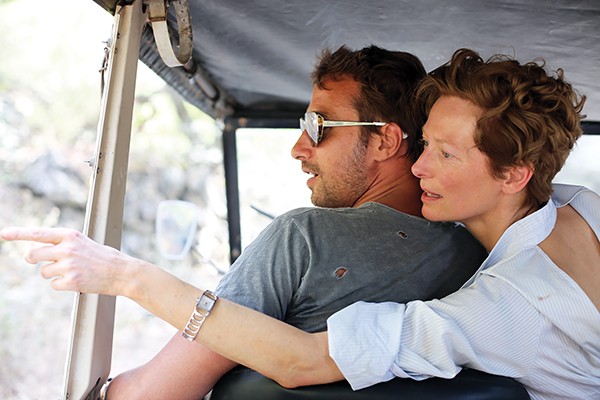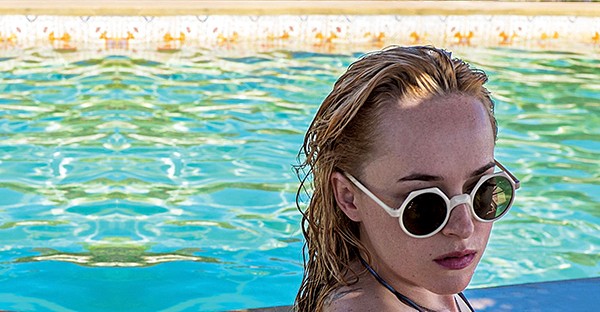There’s an old saying in Hollywood: Men like movies where things explode, women like movies where relationships explode. Well, ladies, Challengers is here to bring the boom.
I know this is the 2020s, Hollywood has always been sexist, and things are not nearly as binary as they once seemed. But we can all, as moviegoers, agree that we like to watch beautiful people doing stuff. In the case of Challengers, “stuff” is tennis and sex.
The people involved are all beautiful to a point that challenges the anatomically possible. Take Josh O’Connor, who plays vowel-challenged tennis pro Patrick Zweig. The sizzling 33-year-old has done so many crunches, his six pack abs have evolved into an eight pack. I know this because I counted his quivering abdominal bulges during the extended nude scene with his frenemy Art Donaldson, played by the also-nude Mike Faist. When Patrick corners Art in the sauna to confront and/or make peace before the championship match which serves as Challengers framing device, Art greets him with “Put your dick away.” But this is not that kind of movie.
Art and Patrick have been friends since they were 12 years old, when they were roommates at an elite tennis academy. The doubles partners are so completely obsessed with making it in professional tennis, they ignore the simmering sexual tension between them. But one person who can see it is Tashi Duncan (Zendaya), the hot tennis phenom who catches Patrick’s eye, and also Art’s eye, as she demolishes an opponent on center court. When they approach her at the after-party, she gives an impromptu lesson on the art of the game. One can not truly play tennis at the highest level until one can fully know their opponent’s strengths and weaknesses. “Tennis is a relationship,” she says.
Being Zendaya, she’s naturally irresistible to Art and Patrick, who invite her back to their room without specifying who is expected to do what with whom. Tashi’s got an idea, best summed up as “Let’s you and him fuck.”
After the late night hotel scene devolves into ménage interruptus, Tashi declares that whoever wins the Junior Championship match between Art and Patrick gets her phone number.
When Art and Patrick next meet on the court, it’s not at the U.S. Open, but 13 years later at Phil’s Tire Town Challengers Tournament in New Rochelle, New York. It’s the bottom of the barrel in professional tennis, and that’s where Patrick lives now. More accurately, he lives in his Honda in the parking lot. Art is a major tennis champion on the comeback trail after shoulder surgery. He’s here to pad his win numbers by beating up on some chumps. That was Tashi’s idea. She’s his coach now, after suffering a gruesome, career-ending knee injury in college, as well as his wife and baby mama. Their three-way sexual obsession will come to a climax on the court.
That not-so-subtle pun is inspired by Luca Guadagnino. The Italian director never saw a phallic symbol he didn’t want to wave in your face, including rackets, strategically placed balls, and, in one homoerotic tour de force, churros. He’s banking on Zendaya’s star power to bring his film across the finish line (to mix my sports metaphors), and she’s perfect at playing a terminally competitive obsessive who gets turned off when her lovers don’t want to talk tennis in bed.
Challengers is visually stylish with a throbbing Reznor/Ross score. Its biggest problem is that all three of its main characters are irredeemable jerks, so it’s hard to root for anyone in this love triangle. If Guadagnino’s purpose is to show how a life focused solely on competition is an empty existence, punctuated by hot but ultimately unsatisfying sex, then he wins game, set, and match.
Challengers
Now playing
Multiple locations



